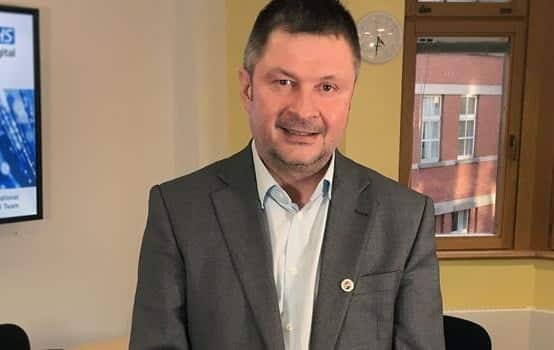As the New Year fast approaches, Digital Health News asked a number of UK digital health leaders to give their predictions of what lies in store for 2018.
Our contributors come from a variety of different roles from within the health technology sector including the Professional Records Standards Body (PRSB) and chief information officers (CIOs) from NHS trusts across the country.
Professor Maureen Baker, chair of the Professional Records Standards Body
“2017 has been a landmark year in digital transformation, from the launch of the “Great North Care Record” to the “Building a Digital Workforce” initiative.
“Change is truly upon us and the PRSB is at the forefront of this. Our professional information standards are integral to the digital revolution and this year we’ve made major strides.
“By early 2018 we will have completed the full suite of transfer of care standards, that will ensure information can be easily and quickly shared between professionals anywhere a person receives health or social care.
“The big challenge remains getting standards used in frontline services.
“More and more organisations are adopting PRSB standards, with global digital exemplars paving the way.
“But others are making impressive progress too.
“Next year we hope to see early evidence of better outcomes for people who use services, as a result.
“Making the case for better safety and quality in health and care is my life’s passion and it’s why I became chair of the PRSB.
“Information sharing is key to this and I’ll be beating the drum to raise awareness throughout 2018.”

Adrian Byrne, CIO at University Hospital Southampton NHS Foundation Trust and chair of the Health CIO Network
“Security will continue to get bigger and we will battle not to let it consume us.
“Devices on networks will become more prevalent, but will bring with them security risk
“People will hopefully realise they need to do more than give patients access to their data
“Trusts will have to start doing something about old Windows software and MS Office as it nears deprecation
“I hope we see the first large OpenEHR trust system deployment
“I think the FHIR GP Connect profiles will finally see us depart from closed system mentality – An INTEROPen success.”
Andrew Griffiths, CIO at NHS Wales and director of NHS Wales Informatics Service
“A big focus for us during 2018 will be on transformational change that builds on our national digital platform.
“We’re now at the point where we have a number of truly national systems. Using the Welsh Clinical Portal clinicians can view test results wherever in Wales the test was taken and clinical documents are also available Wales-wide.
“Collaboration with clinicians and industry partners will continue to help us achieve our aims.
“We are setting up a CCIO network for Wales to place digital pioneers on the frontline and promote and develop current and future clinical information leaders.
“A new partnership with the Cardiff Life Sciences Hub aims to provide a platform for SMEs to develop new technologies that will bring the benefits of innovation to patients.
“The ‘eco-system’ will help tech companies to access health and care sector platforms and share digital innovations.
“We will be looking at how data can be used more effectively to improve quality and impact patient care, and we will be introducing SNOMED to help with this.
“We’ve also embarked on a five-year infrastructure refresh to ensure the sustainability and availability of our technical architecture.
“Vigilance against cyber-threats and attacks remains a priority to ensure we are in the best position to protect NHS Wales’ vital digital services.
“Primary care will see new services, including the ability to offer patients access to their summary and detailed GP record.”
Dr Afzal Chaudhry, CCIO at Cambridge University Hospitals NHS Foundation Trust
“I think next year we will see a much stronger drive towards patient engagement and involvement in digital health advances – in part because fundamentally it is the right thing to do; in part because of the government’s developing combined health and life sciences agenda; and in part because of the forthcoming new GDPR information governance requirements.
“Moving away from simply analysing data (however detailed and rich in character) to instead understanding the true value of the information held in a comprehensive health record informed by the patient will bring profound benefits for both patients and their clinicians alike.
“Combining clinical data with personal, social and genomic data, for example, will generate comprehensive and actionable information that will help to support patients through the delivery of more personalised forms of care in the future, ideally moving from a principally reactive system to one where maintaining health is a proactive continuous programme.
“At the same time, in the here and now, particularly for those with chronic conditions, a more informed understanding of their needs through the synthesis of data from multiple and wider data sources, which can then be shared between clinicians, hospitals and community services will undoubtedly improve the consistency and the quality of their delivered care.
“With this in mind, I believe that we will see a rise in the development and use of patient portals which will help patients to understand how they can be more involved in their care, know how to manage their conditions more effectively, and contribute to their health record.”

Rob Shaw, deputy chief executive at NHS Digital
“During 2018 and beyond, organisations must continue to become more cyber aware.
“Focus needs to be on people, processes and technology, as cyber-attacks become more prevalent and complex.
“The threats we have seen during 2017 are unlikely to be going anywhere, with low-effort, high reward ransomware continuing to be prevalent along with more sophisticated command and control structures, making it more difficult to employ traditional mitigation and remediation methods.
“Data is fast becoming the currency that we use to drive Health and Social Care, and both local and national data sharing initiatives will play a big part in improving patient care.
“Sustainability and Transformation Partnerships will also bring about a more collaborative and joined-up approach to healthcare, which is built around the needs of local populations.
“The launch of the Data Security and Protection toolkit in Spring 2018 will provide organisations with a revised process to assess, measure and publish their performance against the National Data Guardian’s 10 Data Security Standards.
“This is aimed to build resilience in the sector and focus on remediation plans to reduce vulnerabilities.”

